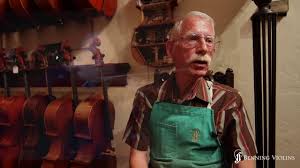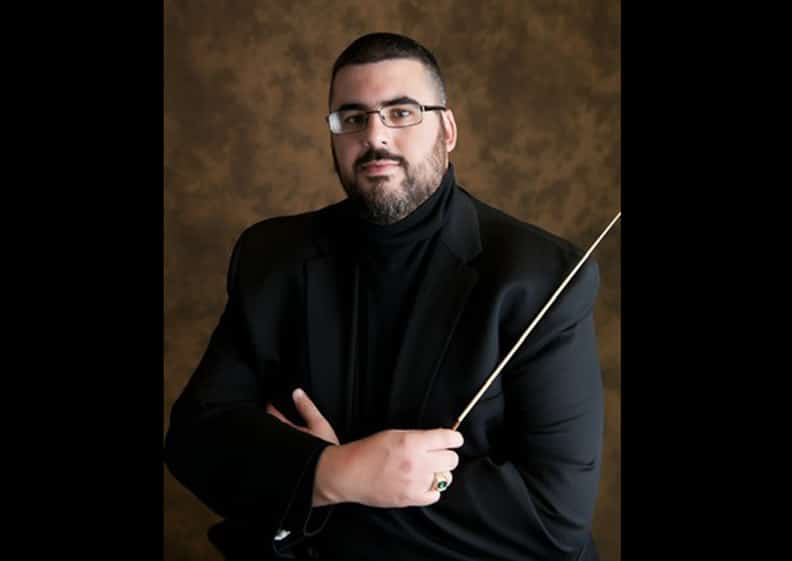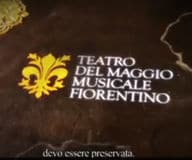The luthier who turned down Jascha Heifetz
mainThis is some way beyond wonderful.


Our attention has been drawn to this incident…

A social media activist has circulated a video…

A concert at the Teatro Maggio Musicale to…

The musicians picked their moment to blank the…

Session expired
Please log in again. The login page will open in a new tab. After logging in you can close it and return to this page.
‘Some way beyond wonderful’…?
It would be even more ‘beyond wonderful’ if we didn’t have to endure the stylistically horrible, manic and relentless violin playing which intrudes on the much more interesting things that Mr Benning is saying.
Agreed that it does intrude, pretty inappropriate use of music that renders this almost unwatchable, but Heifetz playing the Chaconne stylistically horrible? Interesting that you say that. It’s one of those pieces of music that we dare not criticise, being as it is unanimously hailed as a masterpiece. But most of the time it is just annoying to listen to, which is probably why almost no one ever does. Beethoven opus 131, with that interminable variations movement, has a similar effect on me.
You are absolutely right in your assessment — it is indeed stylistically highly questionable and, frankly, praised merely due to the enormous hype surrounding Heifetz’s persona. Heifetz was probably one of the first violinists to bring technical mastery of his instrument to a very high level, but as to musicality it is an entirely different matter. One should add that such mastery was perhaps unprecedented 50 years ago, whereas nowadays there are many violinists in the world who can play at a comparable, if not higher, technical level. I personally don’t believe Bach’s Chaconne should ever sound like Tchaikovsky, as it does on this video, nor that it should include so many glissandi or sound essentially as a showpiece — which it is not. I am aware I may draw the ire of many people by saying this, but I have always found Heifetz to be a much overrated performer, for although he indisputably mastered his instrument, the same cannot be said for his interpretations which tended to put the instrument and the performer — not the music — first. It may work for certain works, but in Bach it simply sticks out like a sore thumb.
Heifetz uses far fewer audible shifts (glissandi) in the Chaconne than he does in, let’s say, Tchaikovsky. In his early career, he was probably the only violinist to play the Chaconne in recital. I suggest that had Bach been around to hear Heifetz, he would have applauded this monumental rendition.
Today, we are surround by scholarship indicating A = 415 with no vibrato and upside down bows. While important to some, it cannot diminish the accomplishments of the modern playing of Heifetz, Nadien and Hahn in this work.
This oft had conversation really fascinates me, I do find that his playing here is a bit cliche-ridden, and that’s a great description you provide: He is indeed playing it like Tchaikovsky.
Just wondering though, does this put you in the historically informed performance camp? If so, you should really watch this brilliantly researched and reasoned lecture:
https://www.youtube.com/watch?v=K1KiGdia5TY
Personally I don’t care how it’s played as long as the player feels the music and is giving something of his or her self. Which is why I love Albert Sammons and Lionel Tertis playing Mozart K364. I mean just listen to the soloists entry! This will really shock the purists, but it’s really not about the style…
https://www.youtube.com/watch?v=rudKobnO1Uk
Hello, and thank you for your comment. I don’t think that this is so much about historical performance as about remaining within a style fitting the work — though I have enjoyed some renditions of Bach on baroque violin, there are several excellent recordings on the modern violin — Grumiaux, Szeryng, Kolja Blacher and Hilary Hahn come to mind.
The wider point here being that there is a range of appropriateness when it comes to style. Within that range, there is a certain amount of leeway, but up to a point. One cannot play Mozart like Bartok, and conversely it would be ridiculous to play Bartok in a style reminiscent of Mozart. Some of Heifeitz’s interpretation may be attributed to what is now an outmoded tradition of playing, when vibrato tended to be mostly intense and when violin playing often included to use of portamenti, but my main criticism here is that overall it is not about Bach — it clearly is about Heifetz, it’s about the performer, not the music. Among the instruments, the violin tends to be one of the most narcissistic, and a good chunk of the violin repertoire is actually pretty shallow musically, mostly designed to showcase the instrumentalist’s technical prowess. In comparison for instance to piano repertoire, the violin repertoire tends to have very few masterpieces from a musical standpoint, whereas the piano has them in spades. There is nothing really in violin repertoire that can rival the depth of Beethoven’s Op. 111 or his Hammerklavier, Schumann’s Fantasie, or some of Mozart’s piano concerti — his violin concerti pale in comparison and, though pleasant to hear, are rather superficial. Heifetz embodies this spirit of showmanship at the expense, in my opinion, of musical depth and substance. It does work in certain things, but not in Bach. One does not have to play Bach without vibrato or become a baroque player in order to do justice to the work, but on the other hand excessive use of vibrato and an abrasive bow technique have no place in Bach and are perhaps suited to more recent works.
So many errors
So little time to correct
Best to leave it be
It is a matter of perspective as to what is intruding. Benning’s dispassionate monotone stands in sharp contrast to Heifetz’ playing of the Chaconne. Han’s story is interesting only because it is about Heifetz, while anything Heifetz plays is beyond wonderful.
On the other hand, some comments are beyond ignorant. It brings to mind a verse from Matthew: Do not give that which is holy to the dogs, nor cast your pearls before the swine, lest they trample them under their feet, and turn around and tear you in pieces.
Regarding ‘Benning’s dispassionate monotone’, a remedy for that is to play the video at 1.25 or 1.5 times the speed, using the settings-tab at the bottom of the clip. Does wonders.
The music being played would also speed up, resulting in a Bach Chaconne in F minor. It’s already a bit fast. And the purists would want a lower pitch, not higher.
Indeed. The use of ‘selective auditory attention’ is strongly encouraged.
Larry that’s unnecessarily biblical of you. As a young person I loved everything of Heifetz, but that playing on this clip, probably due in part to the context, just doesn’t do it for me and I’d rather listen to the old guy telling his story, regardless of how laconic he sounds. Perhaps I just don’t care for the violin, or violinists? That could be it, which is a bit of a problem considering I am one myself…
Not unnecessarily biblical at all, David. The Chaconne is as great a religious or spiritual statement as there is in music. As for context, listen to the actual performance without the narration. He did it in one take– extraordinary, given his age at the time. In his prime, Heifetz caused many a violinist to pray.
Larry wrote, “In his prime, Heifetz caused many a violinist to pray.” That might be the best comment in this entire thread! His playing belonged to another era in terms of style and interpretation, for which fact no one needs to apologize. That he was the absolute master of that school is indisputable. Other violinists did indeed pray, specifically that they might one day play any single page of any piece with the total mastery displayed by Heifetz. What emerges from Hans Benning’s monologue is the uniformly consistent depiction of Heifetz as a fastidious perfectionist. He demanded every bit as much from himself as did his critics. It is possible, of course, to disagree with any of his musical decisions. But it is impossible to challenge his artistry and complete mastery of anything he ever played.
The most beautiful video about heifetz ever made.